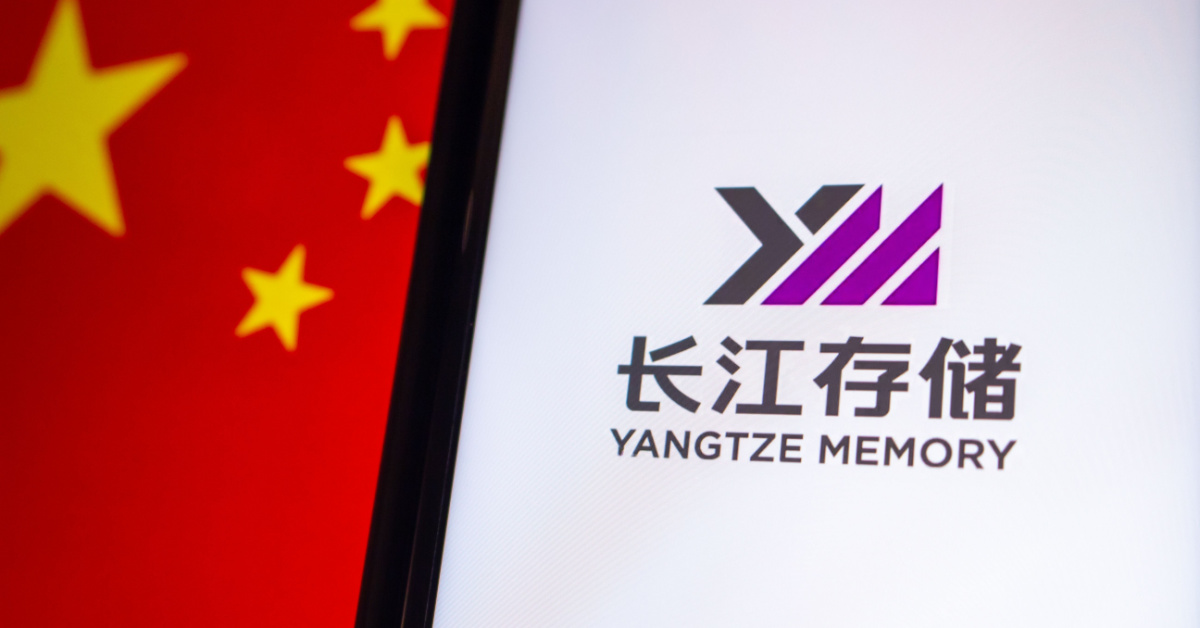China's YMTC Scrounges For Billions To Help Bypass US Sanctions

China's YMTC is being forced by US sanctions to raise fresh capital, as lawmakers continue to press for tougher action against Beijing, including restrictions on the RISC-V instruction set architecture.
The Chip Wars continue apace, with reports that YMTC (Yangtze Memory Technologies Co), China's largest memory chip maker, has had to appeal for new funding after burning through cash reserves in its efforts to adapt to sanctions imposed by Washington.
According to the Financial Times, YMTC has already used up $7 billion in capital it received from shareholders earlier this year, including from the state-run China Integrated Circuit Industry Investment Fund.
This was used up on replacing equipment and the development of new components and chipmaking tools, following the company being placed on US blacklists last year that barred it from buying American-made chip design and manufacturing kit.
Sources familiar with the situation said the new funding is "equivalent to billions of dollars," but did not confirm a precise figure.
There was industry chatter at the time of the blacklisting that YMTC could face significant issues with memory manufacturing and it was even suggested the company might be forced to exit the 3D NAND market.
YMTC appears to be surviving, however, and is now reportedly shipping an advanced 232-layer quad-level cell (QLC) flash chip, described by TechInsights as the world's most advanced 3D NAND memory.
This was discovered in a 1 TB SSD launched in July and claimed by the analyst as having the highest bit density seen in a commercially available NAND product.
Last month, YMTC chairman Chen Nanxiang was elected head of the China Semiconductor Industry Association (CSIA) and called for unity among members amid US sanctions, according to the South China Morning Post.
Chen said China's semiconductor industry was facing "unprecedented upheaval," but at the same time had a great opportunity to develop native technology.
This will no doubt lead to renewed calls from senior US figures for even tighter restrictions to contain Beijing's semiconductor ambitions. Last month, the Biden administration revealed updated trade restrictions focused on limiting Chinese access to AI technology such as GPU accelerators.
- Dirty dancing grabs the attention of China's cyberspace regulators
- Mozi botnet murder mystery: China or criminal operators behind the kill switch?
- Feds collar suspected sanctions-busting Russian smugglers of US tech
- Vietnam becomes latest nation to pitch itself as a chip biz hub
One area that continues to pose concern for Washington is the RISC-V open instruction set architecture, which is being adopted in processors by Chinese companies because it is not controlled by any single company or country.
Reuters reports that a bipartisan group of lawmakers is now pushing the Biden administration for plans to prevent China from achieving dominance in RISC-V, according to a letter the group sent to Commerce Secretary Gina Raimondo.
An element said to be under consideration is asking the Department of Commerce to extend to RISC-V an existing executive order that requires US companies to get an export license before working with any Chinese organization.
RISC-V International, the non-profit that maintains and publishes the specifications, has already spoken out about any potential US government moves to restrict access. CEO Calista Redmond said this might lead to a bifurcation of the standard and "a world of incompatible solutions."
She also said the published RISC-V standards contain "no more information than what is already published by proprietary architectures" and the only difference is that no proprietary license is required to build a RISC-V product. In other words, the RISC-V specifications are not a blueprint to make a chip.
The global RISC-V Summit takes place next week, November 7-8, in Santa Clara, California. ®
From Chip War To Cloud War: The Next Frontier In Global Tech Competition
The global chip war, characterized by intense competition among nations and corporations for supremacy in semiconductor ... Read more
The High Stakes Of Tech Regulation: Security Risks And Market Dynamics
The influence of tech giants in the global economy continues to grow, raising crucial questions about how to balance sec... Read more
The Tyranny Of Instagram Interiors: Why It's Time To Break Free From Algorithm-Driven Aesthetics
Instagram has become a dominant force in shaping interior design trends, offering a seemingly endless stream of inspirat... Read more
The Data Crunch In AI: Strategies For Sustainability
Exploring solutions to the imminent exhaustion of internet data for AI training.As the artificial intelligence (AI) indu... Read more
Google Abandons Four-Year Effort To Remove Cookies From Chrome Browser
After four years of dedicated effort, Google has decided to abandon its plan to remove third-party cookies from its Chro... Read more
LinkedIn Embraces AI And Gamification To Drive User Engagement And Revenue
In an effort to tackle slowing revenue growth and enhance user engagement, LinkedIn is turning to artificial intelligenc... Read more

